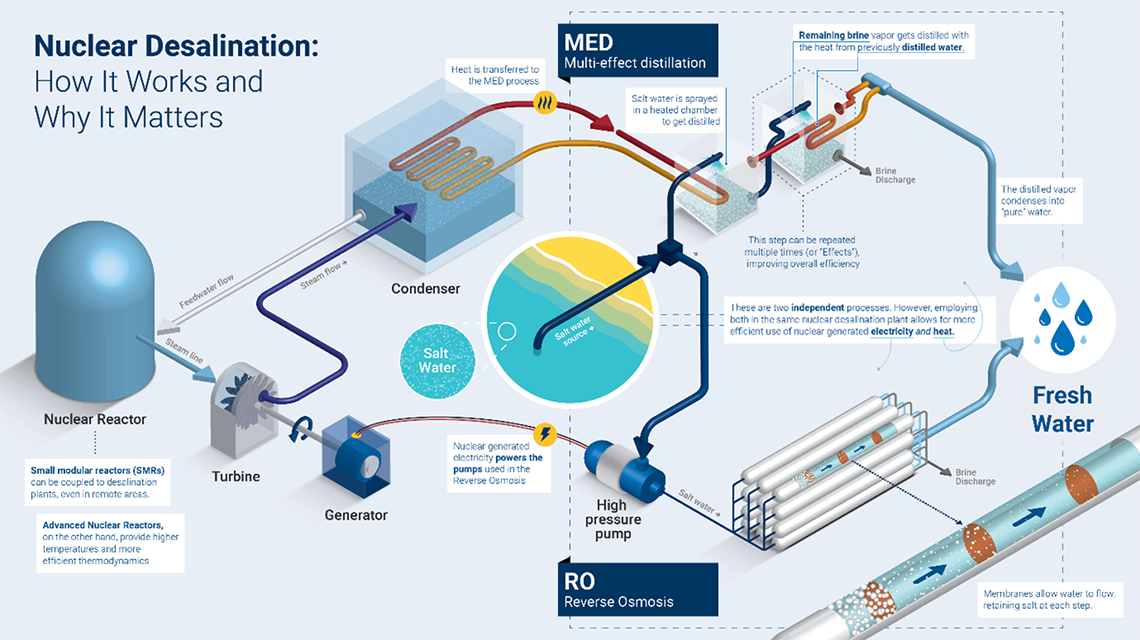Jordan: Advancing SMR-Powered Desalination
Jordan, where 75 per cent of the land is classified as arid desert, is taking significant steps toward nuclear desalination. The government is exploring Small Modular Reactors (SMRs), compact reactors that could power desalination plants. In 2023, an IAEA team evaluated Jordan’s studies on using SMRs to provide drinking water from the Red Sea to Amman, where water demand is rising.
“Desalination is considered the primary source of fresh water in Jordan to fulfil the expected demand and reduce the supply-demand deficit,” says Khalid Khasawneh, Commissioner for Nuclear Power Reactors at the Jordan Atomic Energy Commission (JAEC). “It offers competitive prices for fresh water to end consumers, in comparison with imported energy sources.”
Saudi Arabia: The Desalination Leader Exploring Nuclear
Saudi Arabia, already the world’s largest desalinated water producer, began exploring the use of nuclear energy for desalination in the late 1970s. As part of its strategy to move from an oil-based economy toward a diversified power production, the country is now considering nuclear plants to achieve its net zero ambitions and meet its long-term water needs.
According to the King Abdullah City for Atomic and Renewable Energy (KACARE), “the Kingdom is planning a sustainable energy mix that includes atomic energy to meet the energy needs of the Kingdom to produce electricity, desalinated water and thermal energy,” which aims to reduce reliance on hydrocarbons and support economic growth.
Egypt: Nuclear Power and Water Strategy
Egypt is also integrating nuclear technology into its water strategy. With the country’s first nuclear power plant, El-Dabaa, under construction, discussions are underway about pairing nuclear energy with desalination in coastal regions. According to the Egyptian State Information Service: “Nuclear energy contributes to enhancing energy security and achieving environmental balance and water security.” As “nuclear facilities can supply the energy required for desalination plants to produce potable water.”
Kuwait: Exploring Nuclear Desalination for Sustainable Water Solutions
Kuwait, which depends heavily on seawater desalination to meet its freshwater needs, is increasingly turning to nuclear technologies to find more sustainable solutions for water and the environment. “Kuwait is facing the effect of climate change, ocean acidification, pollution from the oil and shipping industry, power and desalination activities,” said Nader Al-Awadi, the Executive Commissioner for International Cooperation at the Kuwait Institute of Scientific Research (KISR). In line with its efforts to address these environmental challenges, Kuwait has also established a large-scale facility to carry out research on ocean acidification, aiming to further understand the impacts of changing ocean conditions on marine ecosystems, which are directly tied to the effectiveness of desalination technologies.








